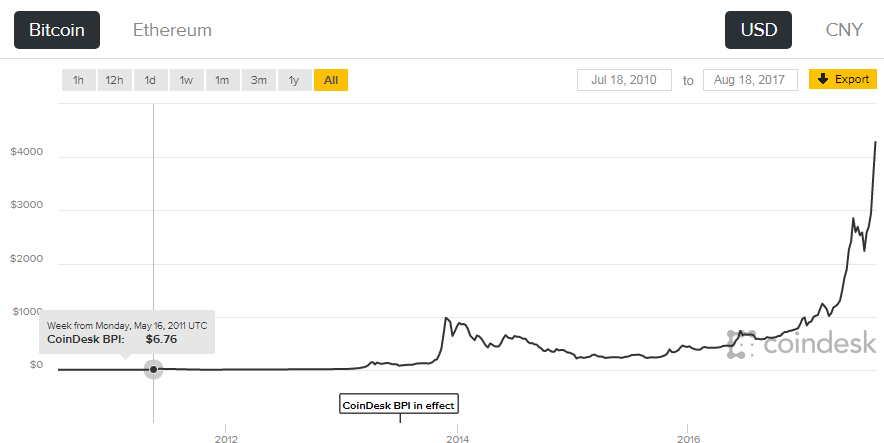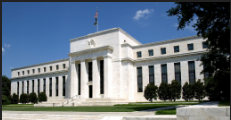Currency Creation: Old and New
Old school government money printing is having a bad week as the Venezuelan bolivar has lost nearly half its value on the black market. “One U.S. dollar recently bought nearly 19,000 bolivar on the black market, down from roughly 10,000 last Friday according to Dolartoday.com,” writes Chelsey Delaney for the Wall Street Journal.
The Venezuelan government claims the two official exchange rates value the bolivar at around 10 and 3,000 per U.S. dollar. Delaney describes Venezuela as “once Latin America’s richest country.” Now, she quotes Juan Carlos Rodado, head of Latin American research at Natixis, who says, “There’s no toilet paper, there’s no food.” The average Venezuelan has lost 19 pounds during the past year.
The Telegraph reports,
At the heart of Venezuela’s economic chaos lies market distortions. Petrol is sold at less than 1p per litre, costing £12 billion in state subsidies. Price controls mean that it is unprofitable for small businesses to sell staple goods, creating shortages.
Venezuela has a complex monetary arrangement that makes use of three different exchange rates simultaneously. This feeds rampant corruption: the president’s cronies can buy dollars from the state at ten bolivars per dollar but proceed to sell them at 4,500 bolivars a dollar on the black market.
But probably the worst aspect of Venezuelan daily life is the violence. The murder rate of Caracas, the country’s capital, is 80 times higher than London’s. Carjackings and kidnappings have become commonplace.
So while socialism has turbocharged the drain of capital and societal deterioration in Venezuela, Protocol Labs Inc. raised about $193 million for its Filecoin Network. The project, which would be incomprehensible to the simple-minded thieving socialist thugs in in South America, is designed to create a marketplace for unused computer server space. There is lots of unused file space around the world and filecoin will pay in filecoins for that space to be used, giving developers the incentive to create more file space. Or, filecoin holders can trade their tokens for filespace.
Think Airbnb, but instead of renting unused homes, it's renting unused file space.
Protocol “raised about $187 million in the first hour Thursday and had earlier raised about $52 million from a group of venture capital investors,” writes Paul Vigna for the WSJ.
The flood of orders shut down the site, but eventually order was regained. “Token prices, which initially began at $1.30, would start on Saturday at $4.68, rising along a defined price function, and offering investors various vesting periods, with higher discounts for longer vesting periods,” writes Vigna.
It appears funding is 70 percent complete, reports Vigna. “Even if Filecoin’s fundraising stopped at this point, it would be a large deal, $245 million in virtual currencies when combining the venture-capital round with Thursday’s offering.” Most deals involve operations that have been ongoing. “Filecoin is a project that hasn’t yet been launched.”
Vigna writes that 1.33 billion in old fuddy duddy dollars has been raised for initial crypto coin offerings (ICOs) year to date. But, of course, no one is using the Treasury Department’s paper product to fund these offerings. “The enthusiasm helped propel prices of digital currencies such as bitcoin, up nearly four times year-to-date, and ether, up about 3,700% in 2017. Bitcoin and ether are the main currencies used to fund initial coin offerings.”
In Venezuela, “People are buying dollars in a panic,” Mr. Rodado told the WSJ. Maybe for now, but they may be soon rushing into a currency the market provides.



